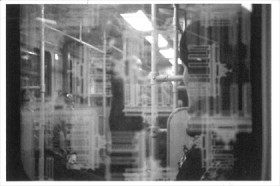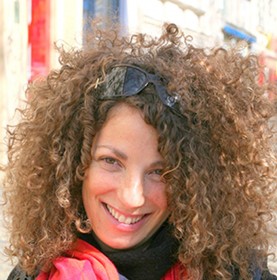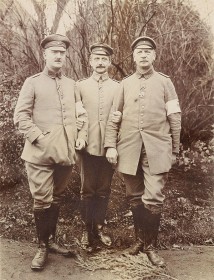Daphna Westerman’s Postcards in Motion

One of Daphna Westerman’s postcards, front view. © Jewish Museum Berlin, Photo: Lisa Albrecht
Did you find a postcard like this one in your mail box as well? Or have you even pulled the entire road movie by Daphna Westerman out of our Art Vending Machine? By now the Machine is sold out completely. But no need to stop the movie! Let’s just rewind a little…
Before the work of the Israeli artist ended up in the museum’s Art Vending Machine, I received a postcard with a black and white photograph. Except for my address and the title, “U-Bahn Berlin. From In and between the cities, 2011. A film by Daphna Westerman,” there was nothing more to it. A few days later more cards were in the mail. Time to phone Daphna. → continue reading

Portrait of Ruthe Zuntz © Ruthe Zuntz
Less than three months after our art vending machine was filled with another 1,400 commissioned art objects, it has sold out. Visitors to the museum might have pulled a picture by Ruthe Zuntz from the machine. Pieces from her “PHOTOMAT: Challenging WallMAT” series, as the photographer entitled her square Dibond aluminum prints which cover ten different motifs, could be sparkling in many new households – like Ruthe herself whom I recently met.
Ruthe, you’re actually known for large, space-filling installations. And yet, for the art vending machine you produced a series of small photo prints. How did that happen?
I found the project really exciting because it matches one of my basic philosophies: → continue reading

Carl Hartog (first from left) with two colleagues, Douai, January 1914 © Jewish Museum Berlin. Donated by Virginia Van Leer Dittrich
Visitors can see an album with photographs of places along the Western front in our cabinet exhibition “The First World War in Jewish Memory” for only another few days. The album is part of the bequest of a Berliner gynecologist Dr. Carl Hartog (1877-1931), having been given to the museum at the end of 2001 by Hartog’s granddaughter Virginia Van Leer Dittrich.
Born the son of a leather manufacturer in 1877 in Goch on the Lower Rhine, Carl Hartog studied medicine in Munich, Bonn, and Würzburg. He subsequently established a practice as an ob-gyn in Berlin but, having already done a half year of military service as a student, he stayed loyal to the military as a working professional. → continue reading


